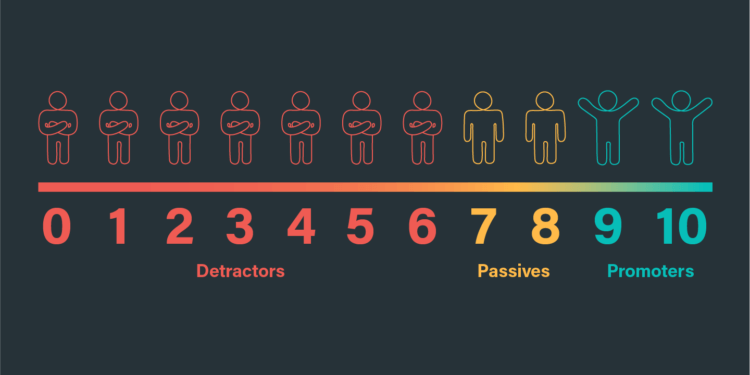

About the episode:
Providing a positive client experience is essential to the success of your firm—but how do you know if you’re delivering a good client experience? How do you get inside the minds of your clients to know whether they’d recommend you to friends, family, and colleagues?
Have you considered….asking them?
In this episode of Matters, we’ll look at why collecting, analyzing, and acting on feedback is an essential practice for law firms. We’ll discuss some of the best, most practical ways for you to gather feedback from your clients, and how to make good use of it. We’ll also touch on why many attorneys shy away from feedback—and how even negative feedback can actually be a major positive.
Joining us are Anu Sethee, the Senior Director of Attorney Services and Product Counsel for Legal Plans at LegalZoom, and Josh Valentine, a partner at the Caulder & Valentine Law Firm in North Carolina.
Our Guests:

Anu Sethee
Anu Sethee is the Vice Preisdent of Attorney Services and Product Counsel for Legal Plans at LegalZoom, an alternative legal services provider that offers legal plan subscriptions and online legal services to more than 4 million customers in the US and UK. She lives in the Los Angeles area and specializes in bankruptcy, immigration, business, and real estate law.

Josh Valentine
Josh Valentine is a partner at Caulder & Valentine Law Firm, PLLC, a boutique North Carolina firm. Josh has been named to the Top 40 Under 40 for Criminal Defense by the National Trial Lawyers, and he was selected as one of the American Institute of Criminal Law Attorneys’ 10 Best Attorneys for Client Satisfaction—three years in a row.
Host bios:

Teresa Matich
Teresa Matich is the Content Strategist at Clio, where she’s responsible for educating the legal industry on market trends, best practices, and important issues impacting law firms. In her spare time, she enjoys traveling, snowboarding, and traveling to snowboard. Email her at [email protected] or tweet her at @TeresaMatich.

Andrew Booth
Andrew Booth is the technical producer for Matters, and works within the Business Operations department at Clio as the Learning Media Specialist. He is best known as the voice (and sometimes face) of Clio’s training videos. Andrew received his Broadcast Communications degree from BCIT, and has produced work for such broadcasting outlets as Global News and Roundhouse Radio. Email him at [email protected].

Derek Bolen
Derek Bolen is the Senior Manager of Customer Marketing at Clio, which means he gets paid to build relationships with the greatest customers in the world. When he isn’t working, he’s tweeting, reading, writing, podcasting, running, obsessing over fantasy football, or hanging out with his 5 year old son. Email him at [email protected], or tweet him at @hurrrdurrr.

Sam Rosenthal
Sam Rosenthal is a Content Strategist for Clio, specializing in thought leadership and creative content. A graduate of UNC-Chapel Hill’s journalism program, Sam works on literary fiction and screenwriting projects in his spare time. Email him at [email protected], or tweet him at @SamRoseWrites.
Show notes:
- Introduction to the concept of client feedback.
- The legal industry’s current habits regarding feedback collection.
- Anu and Josh describe some of the attitudes that cause lawyers not to seek out feedback.
- Josh describes the opportunity and potential that implementing good feedback protocols can have for firms.
- Anu talks about what makes feedback such an important part of LegalZoom’s success.
- Anu explains how a tool called Net Promoter Score, or NPS, can help solicit extremely valuable feedback.
- Josh talks about using NPS at his firm.
- Josh and Anu give their advice for firms looking to collect more feedback and generate more positive reviews and referrals.
- Summary and closing statements.
Transcript
Read full transcript
Anu: To have customers who are so loyal to you and advocates for you to their friends and family is so important, because that’s how you’re going to drive, you know, further attracting additional customers and retaining the customers that you have for additional legal services.
Josh: So, I definitely think any firm that is focused on growing and constantly improving should be and would be concerned about client feedback. The only reason I could see an attorney not concerned about client feedback is if they are just at a point where they don’t care anymore.
Sam: I’m Sam Rosenthal, and this is Matters. Matters is a podcast presented by Clio, the world’s leading cloud-based legal technology provider, where we look at small changes that can make a big impact on your daily life and practice. In today’s episode, we’ll be talking about client feedback, and why it matters.
It’s no secret that providing a positive client experience is critical to the success of your firm. But how do you know if you’re delivering a good client experience? How do you get inside the minds of your clients to know whether they’d recommend you to friends, family and colleagues, or tell them to stay away?
Unfortunately, there’s no mind-reading service on the market for law firms. But there’s actually a surprisingly obvious way to get closer to what your clients want: asking them for feedback.
In this episode, we’ll look at why collecting, analyzing and acting on feedback is an essential practice for law firms while discussing some of the best, most practical ways for you to gather and use feedback from your clients. We’ll also touch on why many attorneys shy away from feedback, and how negative feedback can actually be a real positive for your law firm.
In 2019, in almost every industry, and the legal industry in particular, word of mouth is make or break. For law firms, online reviews and referrals create an increasingly meaningful impact when it comes to how clients and potential future clients view your firm. In fact, according to the 2017 Legal Trends Report issued by Clio, 62% of people hiring a lawyer turn to friends and family for recommendations.
With recommendations and referrals directly influencing more than half of the pool of potential clients, you’d think that law firms would be closely tracking exactly what past clients think of them. The reality? Most aren’t.
The 2018 Legal Trends Report found that the majority of law firms don’t consistently collect feedback. Forty-two percent of the firms surveyed said that they collected feedback only casually or informally, and 37% said that they don’t collect feedback from clients at all. So, if feedback is valuable for understanding client satisfaction and for getting referrals, why aren’t lawyers seeking it out?
Anu: I’d say that kind of the attorney’s perspective on the value of feedback kind of goes, I would say falls in two buckets.
Sam: That’s Anu Sethee, the Senior Director of Attorney Services and Product Council for Legal Plans at LegalZoom, an alternative legal services provider that offers legal plan subscriptions and online legal services to more than four million customers in the U.S. and the UK. Anu says that attorneys sometimes don’t actively seek out feedback, because they mistakenly think that they already know all that they need to know from their customers, which undervalues what clients actually care about.
Anu: On the one hand, attorneys often think that ‘I’m not going to gather any useful information that I don’t already know from these customers.’ And to that I’d say you’d be very surprised, because the customers often – like we were just talking about – value very simple things and things that we wouldn’t otherwise think are super valuable in their experience.
Sam: Other times, lawyers may avoid collecting feedback because their longstanding assumptions obscure the value of listening to their clients’ experiences. Josh Valentine, a partner at Caulder & Valentine Law Firm, a small boutique firm in North Carolina, sees this often.
Josh: Yeah, I think it’s probably not hard to develop an attitude of ‘I know what I’m doing and I don’t need anyone to tell me how to do it.’ But I think there’s also a problem with, especially my generation and people who are younger — they grow up, they go to law school, become an attorney, and they think they’ve reached the top of the world.
Sam: Whether it’s due to undervaluing the importance of feedback or simply not recognizing the need for it, law firms that don’t ask for client feedback are missing out on a major opportunity to grow their business. By collecting feedback, firms can better understand what’s working and what’s not for their clients. Doing so helps law firms to deliver a more positive client journey, which means more positive reviews, more referrals and, in the long term, more profits, as Josh can attest to.
Josh: One of our biggest revenue income client-building marketing channels is Google Reviews and [Ava] Reviews. By getting that client feedback throughout the process, we typically have a good idea if we’re meeting clients’ expectations or not. If we’re not, we immediately try to fix it.
By following up, constantly being open to client feedback, we have tremendously increased our online reviews. We’ve also increased our word-of-mouth referrals. We’ve gotten a lot of the other attorneys in the area who practice in other practice areas, or who may just be conflicted out of a case, they often send us cases because they hear good things about us from clients and other people in the community.
Sam: Another often overlooked bonus, by using feedback to improve a customer’s experiences, clients tend to be happier overall, which means coming to work is simply more pleasant for everyone. And, when it comes to developing a business, feedback is an important tool in evolving and refining the services you offer, so you can give clients what they want and need.
While they sometimes get a bad rap in the legal space, alternative legal service providers demonstrate how client feedback can create a better relationship with customers and impact their success. With a suite of alternative legal services and a charge to make legal help available to all, LegalZoom, for example, built their business on putting client needs first.
Anu: Client feedback is so important in the design of our brand, because we can sit all day trying to come up with what we think our customers want and the way that they may want to engage with our brand. But having that information directly from them and designing our experience kind of based on that feedback is really invaluable.
It’s a huge part of our brand and mission is to put the customers first and really make it easy for them to access legal services. That’s why I came to LegalZoom, kind of with that large mission to democratize the law and really make legal services accessible to those who maybe otherwise didn’t have access to legal services.
Sam: So what can law firms gain from providers like LegalZoom? By keeping customers’ needs top of mind, companies are better equipped to give them what they really want and need, and are therefore more successful. In fact, LegalZoom takes client feedback so seriously that it started offering entirely new products based on what its customers had to say.
LegalZoom’s successful conversion of client feedback with their legal service plans is a great example of why understanding the client experience is so important. Law firms need to learn how their clients feel about their experience working with the firms so that they can be competitive, identify opportunities for improvement, and drive new business via referrals and reviews.
Anu: Specifically, our legal plans were actually a direct result of customer feedback from their experience with LegalZoom, because LegalZoom started as a transactional DIY kind of business where customers had access to legal forms. And then the feedback that we received was that customers had questions about what options were appropriate for them and what their best course of action was, which as company we couldn’t answer.
So, we created our legal plan so that customers could be routed to qualified professionals to help them with their experience of our products. And then slowly we began to realize that that access to professional advice is actually a valuable product on its own, and that’s kind of how we got to where we are today.
Sam: In our first episode of Matters we talked about how creating a positive client experience can give your firm a competitive edge, and is critical for getting positive reviews, referrals and word of mouth in today’s world. Modern legal clients expect a frictionless experience from businesses and have high expectations of their interactions in the legal space. More than just winning their cases, factors like quick response times, convenience and meaningful communication contribute to the clients’ perception of being well served.
Of course, there’s no cookie-cutter recipe for giving your customers a great experience. Every firm is different and every client has different needs and experiences. So this is where client feedback comes into play. As Josh says, asking for feedback is the only way to really know if you’re on the right track when it comes to your clients.
Josh: Part of our goal in building our firm is to determine what are we doing right, what are we doing okay, what’s just mediocre, and what can we do better. The only way we can do that better is asking the client, ‘How has our service made you feel through this process?’
A lot of times clients come to us, they’re confused, they’re not sure about the process, it’s absolutely new. The whole process is new to them. So it’s our job to make it clear, make it as easy and smooth as possible for them to walk through what may be the most difficult times of their lives. So that’s why we believe client feedback is so important for us to improve our firm.
Sam: It’s true what Josh says. If you never ask, you’ll never know. If a client has a negative experience but the firm doesn’t know about it, that’s a missed opportunity to make changes and improve. Similarly, if a client has a positive experience but the firm doesn’t ask about it, they’ve missed out on an opportunity to recognize what’s working, which could be a chance to acquire a potentially valuable referral or review.
Any way that you can start to ask for client feedback is a great place to start. Whether you start asking clients about their experience at the close of a case, asking new clients how the on-boarding process was, or asking old clients to get a coffee to learn what their experience with your firm was like, chances are you’ll get valuable insights that can help your practice improve.
According to Lee Resources International, for every customer who complains, you’ll find a staggering 26 more who have remained silent. So no matter how you do it, it’s time to start asking your clients how they feel.
But beyond that, there’s another step to take when collecting client feedback to ensure you’re getting the best, most reliable insights for your firm: taking a data-driven approach to collecting feedback by using a metric like a Net Promoter Score, or NPS®. Anecdotal feedback from your customers can certainly be helpful, but when you collect feedback in a systematic way, guided by a metric like NPS®, it’s easier to identify blind spots as well as to see the potential of what’s really working for your firm. As Anu explains, NPS® is a big part of LegalZoom’s approach to customer feedback.
Anu: NPS® stands for Net Promoter Score, and it’s based on the question of how likely are you to recommend company X – in our case, LegalZoom – to your friends and family. And then that likelihood to recommend is a strong indicator of loyalty, and has a direct kind of correlation with a company’s growth rate.
Sam: Basically, it comes back to asking your clients for feedback. You ask clients questions and ask them to respond on a scale of zero to ten. Depending on the score given, respondents are then sorted into different groups; promoters, scores of nine or ten; neutrals, scores of seven or eight; or detractors, scores of zero to six.
Interpreting the scores is just as it sounds. Promoters would actively promote your service. Neutrals can be considered neutral. And detractors would actively be negative about your service. Your NPS® is then calculated by subtracting the percentage of detractors from the percentage of promoters, to give a score that can range from negative 100 to positive 100.
Tracking NPS® works well because NPS® surveys are shorter than other types of customer surveys, making the process less daunting for law firms and clients alike, which is key for successfully collecting client feedback, as Anu knows from experience.
Before joining LegalZoom, Anu had her own practice where she sought feedback from customers in the form of lengthy questionnaires. The response, a pretty dismal 1 to 2% response rate. With shorter NPS® surveys, Anu says the response rates are dramatically different.
Anu: Something like this, I mean we see closer to 10 to 15% response rate, because it is just so easy and quick for the customer, but it’s very valuable information.
Sam: There are also other ways to collect feedback that can be valuable, particularly for smaller firms. For example, at a small boutique firm like Caulder & Valentine, Josh makes use of a spreadsheet to help track his firm’s client satisfaction.
Josh: We started maintaining an NPS® score for tracking client feedback about six months ago. We’re part of the Rosen Institute. An attorney out of Raleigh, North Carolina built a very large family firm, family law practice. And he has an institute of attorneys where he teaches a lot about the promoter score, Net Promoter Score.
And so, me and my assistant, Mr. [Huddle], we got together and created basically a marketing management type spreadsheet where we maintain how satisfied they are with our services. So, that’s kind of where we started with it. Right now we keep a spreadsheet of clients who, I think on a scale of pretty much one to five, how satisfied they are. And then, right now we’re kind of, since we’ve only been doing it for a few months, we’re kind of still trying to build a trend, see how it progresses over the months as we do it. But we have found the custom fields in Clio really helpful in allowing us to create custom entries that we can use to pretty much track whatever we want.
Sam: While asking for feedback in any way is always a valuable tool, Anu says that being consistent and data-driven is worth it when it comes to using feedback as a tool for growth.
Anu: I mean, very simply, feedback is just critical for growth and to understand how to get customers who may be likely to recommend, may not be likely to recommend, to a point where they will actively recommend your services to their friends and family. This is really what moves the needle in terms of attracting and retaining customers. So, to utilize a metric that kind of captures that entire range of a customer’s loyalty and trust in your brand is very critical.
And when you’re calling a customer and asking for informal feedback, it may be filtered, it may be biased, because they don’t want to provide that kind of direct information. And it may not be as informative. So it’s really just a very valuable metric to get detailed information on the customer experience.
Sam: Once you have consistent data from metrics like your NPS® score, there’s an opportunity to take things one step further and excavate even more valuable feedback from your clients.
Anu: The score is kind of used as a guide, and then we have a comment section where a customer can input information on that score. And that feedback is, I mean we’ve made large changes based on that feedback, even just in terms of our program, our legal plan consultations. But I mean that feedback, the attorneys are really able to take the feedback and try to address detractors specifically to ensure positive customer experiences. And we’ve found that our attorneys, who have the highest NPS® and really take customer feedback into account to move that NPS®, really have the highest retention rates in terms of our legal plans, and then they tell us.
Sam: So, use the scores or numbers as a guide and fill in the blanks asking clients to comment on why they gave you a certain score. The remarks people leave are key to giving you ideas for how you can act to improve the client experience.
Anu: We send the customer an email inviting them to take a brief survey. And that survey includes several kind of five-star rating questions specific to their consultation and to their attorney experience. And those five-star questions are, you know, like an overall rating, ratings on how friendly and knowledgeable, responsive the attorney was. And then it also includes that NPS® question of how likely they are to recommend LegalZoom to their friends and family, and has space for comments so they kind of elaborate on why they selected the number on that scale from zero to ten.
Sam: LegalZoom tracks multiple levels of NPS® scores from the individual attorney to a law firm level and a department level NPS®. So everyone gets a high-level guide of how they’re doing in terms of the client experience via their NPS® score, and gets plenty of feedback to improve and thrive.
Anu: When an attorney is on-boarded onto our legal plan, we give them a primer on our review program and how important it is to us. And then we provide them with best practice guides and ongoing coaching. And every detractor – so that zero to six range – every detractor that comes in after our legal plan consultations, we’re reviewing those comments and those numbers to see if there’s valuable information that we can provide the attorney, that can help them grow and adjust as they move forward. So the attorneys are provided with a monthly report that has all of their comments that they received.
Sam: Initially, attorneys were hesitant about the idea of collecting client feedback. But once they started to see how listening to feedback could positively affect their businesses, they quickly got on board.
Anu: There’s this really great story about how our first legal plan attorney, after he started taking consultations and we began doing this NPS® question, he had like a negative 30 NPS® because, by his own admission, he was like, ‘These customers are lucky that I am picking up and calling them and giving them legal advice.’
So, we took that feedback and we really began to work on best practices and coaching, and really emphasizing the importance of the customer experience. And after that, I think the attorneys very quickly realized how valuable it is to be able to like benchmark and improve based on that customer feedback.
Sam: Today, attorneys that work with LegalZoom have found collecting NPS® feedback so useful, that they’ve implemented their own programs at their firms.
Anu: Our attorneys that service our legal plans, actually, a lot of them do set up their own NPS® service process for their customers, because of the results and the feedback that they see coming in from the legal plan consultations.
Sam: Whether you’ve collected NPS® feedback, an informal survey, or an email survey, your data is only useful if you act on what clients are saying. Take a look at what clients are saying, and make the necessary changes to your processes and policies to improve their experiences. By making changes directly influenced by the concerns of your customers, you can ensure big improvements in how your customers feel about your practice.
And, if customers find that changes are made based on their feedback, they’re likely to feel more valued and develop a deeper relationship with your firm. Anu gives us a good example of how her company collected feedback and subsequently created new policies to improve the client experience.
Anu: So, we very early on started seeing a lot of comments from customers about how the attorney maybe didn’t have access to documents that they wanted reviewed prior to a consultation. And from the attorneys’ perspective, they were like ‘Well, we didn’t know until we got onto a call that the customer had a document that would potentially relate to this consultation.’
So one very direct change that we made was that we have our attorneys review consultations one business day prior to the consultation actually occurring, so that they can see in the legal details whether it’s beneficial for a customer to have a document reviewed prior to having the consultation. And then our support term internally contacts the customer.
Sam: Again, while NPS® are a valuable guideline to set a benchmark of where you stand, the real actionable value of feedback is found in what people have to say about their experiences. Comments give lawyers something they can act on to make changes for the benefit of them, their firm, and their clients.
Anu and Josh shared a few more tips for getting the best insights and getting the most out of your client feedback. First, regardless of what method of feedback collection your firm is using, determining when to ask for feedback is important. At Josh’s firm, the team makes an effort to maintain communication and check in with clients throughout their journey, and then request feedback and a review at the end of the process.
Josh: By the time we reach the end of the case, then we ask them how they felt about our services and if they’d be willing to write a review. Ninety-nine percent of the time they are more than happy and want to write us a review.
Sam: Next, when it comes to negative feedback, be open and don’t take it personally. Complaints and negative feedback might be hard to accept at first, but embracing the negatives can actually be the most productive step you can take to create impactful change. And clients will notice. The reality is that, when you change a process, adopt a new tool, or even just change your attitude, what you’re really doing is building a foundation for a better client experience. It’s also important to remain consistent in your interactions with clients, and when it comes to collecting and measuring feedback.
Anu: Really create a cadence for asking the NPS® questions and for that feedback, because it’s most effective when it’s used as a benchmark and you’re able to see your progress or stability or decline. And really, that’s where you’re able to affect the change.
Sam: Once you’ve gathered your feedback, Anu explains that there are two ways to improve your NPS®.
Anu: One is going to be moving detractors to promoters, and the other’s going to be moving those neutrals or passives to promoters. And the first one is easier, detractors to promoters. You’re going to find in those comments, when you start seeing trends, those are really the things that are easy to change.
Sam: This type of shift is possible with some work, which Anu knows from her own experience.
Anu: I was a person who would always say seven or eight, because you know, I can’t be too enthusiastic about any brand. But to get that person to become a promoter for your brand is really subtle and consistent changes. So that’s really important to kind of recognize and start to adjust your approach to the customer experience.
Sam: Anu has one more tip to help you implement an NPS® program at your firm: Do some reading and research to gain a more thorough understanding of the basics of NPS® feedback.
Anu: And then probably one last thing for businesses thinking about implementing an NPS® program, I really recommend reading this Harvard Business Review article called The One Number You Need to Grow. It’s a really quick read and a great primer on NPS®. And we have it as required reading for all of our new attorneys joining our network, and they find it very useful.
Sam: You can’t know what you’re doing right, or what you’re doing wrong, if you don’t ask. Firms that collect feedback gain a better capacity for understanding what’s working and what’s not at their firm, and for their clients. By consistently collecting feedback in a data-driven way and acting appropriately on this feedback, a practice is able to offer a smoother client experience. In turn, the firm can hope for an increase in referrals, more positive reviews, and more profits. Lawyers who look for ways to integrate feedback into their business development plans gain a competitive advantage, focused growth and deeper, more loyal relationships with their clients.
Thanks for listening to the ninth episode of Matters. Matters is produced by Andrew Booth, Sam Rosenthal, Teresa Matich and Derek Bolen, and by Clio, the world’s leading cloud-based legal technology provider. Be sure to subscribe to Matters so you never miss an episode. And, if you’d like to learn more about Clio, please visit us at clio.com.



